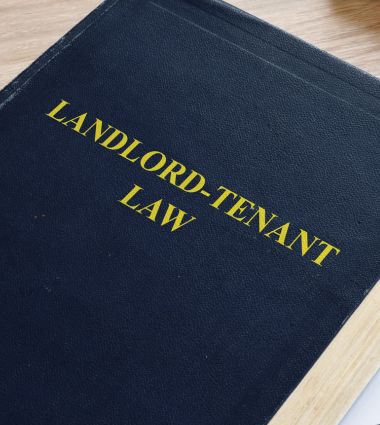How New Mortgage Rules in Canada Can Affect Your Next Home Purchase
Buying a home in Canada has always come with a few hoops to jump through, and the latest mortgage rule changes add a few more. Whether you’re buying your first place, moving into something bigger, or renewing your mortgage, these updates could shake up your plans. Some buyers might find it easier to qualify, while others could face new roadblocks.
So, what does this all mean for you? Let’s break it down in simple terms so you can make the best decision before locking in your next move.
1. Longer Mortgage Terms for First-Time Buyers
If you’re buying your first home and it’s a newly built one, you now have the option to stretch your mortgage to 30 years instead of the usual 25 years. That means your monthly payments will be lower, making it easier to afford a home. But there’s a catch, this rule only applies if your down payment is less than 20% and you have mortgage insurance.
Who Wins?
- First-time homebuyers who are finding it hard to afford high monthly payments.
- People are buying a brand-new home, not a resale property.
- Buyers with smaller down payments who need mortgage insurance anyway.
Who Doesn’t?
- People who already own a home (this rule is for first-time buyers only).
- Buyers who want a resale home (the rule only applies to new builds).
- Those with a large down payment (they don’t need mortgage insurance and won’t qualify for this rule).
Is a 30-Year Mortgage Always a Good Idea?
At first glance, spreading your mortgage over a longer period seems like a win. Lower payments mean more breathing room in your budget. But the trade-off? You’ll pay more in interest over time.
For example, let’s say you borrow $500,000 at a 5% interest rate:
- 25-year mortgage → Monthly payment: ~$2,908, Total interest paid: ~$372,000
- 30-year mortgage → Monthly payment: ~$2,671, Total interest paid: ~$461,000
That’s nearly $90,000 more in interest over the life of the loan. So, while your monthly payments are lower, you’re paying much more in the long run.
This change is great for first-time buyers struggling with affordability, but it’s not a free pass to homeownership. If you can afford slightly higher payments, a shorter mortgage term could save you a lot in interest. If you’re unsure, talking to a real estate lawyer or mortgage expert can help you figure out the best move for your situation.
2. Insured Mortgage Limit Increased to $1.5 Million
If you wanted to buy a home over $1 million before, you had no choice but to put down at least 20% because mortgage insurance wouldn’t cover it. That rule made it tough for many buyers, especially in expensive cities like Toronto and Vancouver, where even a basic detached home can cost more than that.
Now, the limit has gone up to $1.5 million, meaning buyers can qualify for an insured mortgage on homes priced between $1 million and $1.5 million, as long as they meet the down payment requirements.
How Much Do You Need for a Down Payment Now?
- For homes under $500,000 → You need at least 5% down.
- For homes between $500,000 and $999,999 → You need 5% on the first $500K and 10% on the rest.
- For homes between $1 million and $1.5 million (now covered) → 10% down on the entire price.
So, if you’re eyeing a $1.2 million home, you’d need a $120,000 down payment instead of the $240,000 (20%) you would’ve needed before
Why This Matters
- More Buyers Can Get Into the Market — Before, if you couldn’t come up with a 20% down payment, you were stuck. Now, more people can afford homes in Toronto’s pricey real estate scene.
- Keeps More Cash in Your Pocket — Instead of using all your savings for a huge down payment, you might have money left for renovations, emergencies, or other investments.
- Gives You More Options—Instead of limiting yourself to homes under $1 million, you can shop in a higher price range with a more manageable upfront cost.
This rule change makes homeownership possible for more people in Toronto and other high-priced markets, but it’s not free money. A lower down payment means more debt and more interest over time, so buyers should weigh their options carefully.
3. Switching Lenders Just Got Easier
Renewing your mortgage used to come with a catch — if you wanted to switch to a different lender, you had to pass the mortgage stress test again. That meant proving you could still afford your loan at a higher interest rate, even if you'd been making payments just fine for years. For many homeowners, this made switching nearly impossible, trapping them in higher rates with their current lender.
Now, that rule has changed. If you're renewing, you can move your mortgage to a new lender without requalifying. This makes it easier to shop around for lower interest rates and better terms, giving homeowners more options and more bargaining power.
Who Benefits from This Rule?
Homeowners Stuck in High-Interest Mortgages – If you were locked into a bad rate but couldn’t pass the stress test to move, now you can explore better deals.
Borrowers Whose Finances Have Changed – Maybe your income dropped, or you took on more debt since you first got your mortgage. Before, that might have stopped you from switching lenders. Now, as long as you're renewing, you don't have to prove your finances all over again.
Anyone Who Wants Leverage When Negotiating – Even if you don’t plan to leave your lender, knowing you can switch easily gives you more power when negotiating a better deal.
Who Doesn’t?
First-Time Buyers – This rule only applies to renewals, so if you’re buying your first home, you still have to pass the stress test.
People Who Stay With Their Current Lender – If you renew with the same bank, this rule doesn’t change much for you, except that your lender knows you have other options now.
Before, many homeowners were stuck because they couldn’t qualify under the stress test again, even if their payments were never late. Now, lenders have to compete harder to keep customers, which means better deals for borrowers.
The takeaway? If your mortgage is up for renewal, don’t just accept the first offer your bank gives you. Check your options, compare rates, and use this rule to your advantage.
4. Will These Changes Drive Up Prices?
Whenever new mortgage rules make it easier to buy a home, there’s one big question: Will this make houses even more expensive?
Let’s break it down. If more people can qualify for insured mortgages and stretch their payments over a longer period, that means more buyers competing for homes. In cities like Toronto, where prices are already high, this could push demand even higher, leading to more bidding wars and rising prices.
But it’s not that simple. High interest rates are still a big obstacle. Even with these new mortgage rules, borrowing money is expensive, which could slow down the market. Many buyers will still struggle to afford a home, and sellers might not get the sky-high offers they once expected.
What Experts Say:
Some believe prices will rise — at least in the short term. More buyers entering the market could drive up demand, especially for newly built homes that now qualify for the 30-year mortgage rule.
Others think affordability is still a major issue. Even with easier mortgage options, home prices are already so high that many Canadians are still priced out. The market may stay balanced because not everyone can afford to buy, even with these changes.
At the end of the day, it all depends on how many people jump into the market versus how many are still waiting on the sidelines because of high interest rates. If you're looking to buy, keep an eye on the market — it could shift fast.
5. What Should You Do Next?
If you’re looking to buy a home, the first step is to get pre-approved. With these new mortgage rules, your options might look different than before. A pre-approval gives you a clear idea of how much you can borrow and what your payments will be, so you don’t waste time looking at homes outside your budget.
Renewing your mortgage soon? Now that switching lenders is easier, take advantage of the competition. Compare rates, negotiate, and don’t settle for a deal just because it’s convenient. Even a slightly lower interest rate could save you thousands over the years.
Still unsure about what this all means for you? An expert real estate lawyer in Toronto can break it down in simple terms. Whether you're buying, selling, or renewing, they can walk you through the fine print and make sure you’re making the smartest financial decision for your situation.
How a Real Estate Lawyer Can Help You With the New Mortgage Rules
Buying a home is already a lot to take in, and the recent mortgage rule changes can make things even trickier. A real estate lawyer expert in mortgage refinancing can help you understand what’s changed and what it means for you.
Breaking Down the Rules
Whether you're a first-time buyer, upgrading, or investing, mortgage rules aren’t the same for everyone. A lawyer can explain how these changes affect your situation, including stress tests, down payments, and lender requirements.
Reviewing Your Mortgage Contract
Mortgage agreements are packed with legal jargon. A lawyer can make sure you understand the terms, spot hidden fees, and check for anything that could cost you down the road.
Protecting You in Negotiations
If you're dealing with a private lender or trying to get better terms, a lawyer can help you avoid costly mistakes and make sure everything is legally sound.
Handling the Legal Paperwork
From checking the property title to making sure your mortgage funds go where they should, your lawyer takes care of the legal details to keep the deal moving smoothly.
Exploring Your Options if You're Denied
If you’re turned down for a mortgage, a lawyer can help you figure out your next steps — even if that means appealing the decision, finding another lender, or restructuring your finances.
Having a real estate lawyer in your corner means fewer headaches and more confidence when making one of the biggest financial moves of your life.
Final Thoughts
These new mortgage rules won’t fix affordability problems overnight, but they do give certain buyers more flexibility. If you're in the market, knowing how these changes affect you could mean the difference between getting a home or waiting a little longer.
Before making any decisions, talk to a mortgage expert or real estate lawyer to get the full picture. The right strategy today could save you thousands down the road.
Real Estate
Family Law
Wills & Estates
Immigration
Join Our Mailing List.
Sign up with your email to receive our newsletter and stay informed about the latest legal developments and special offers.






















































































